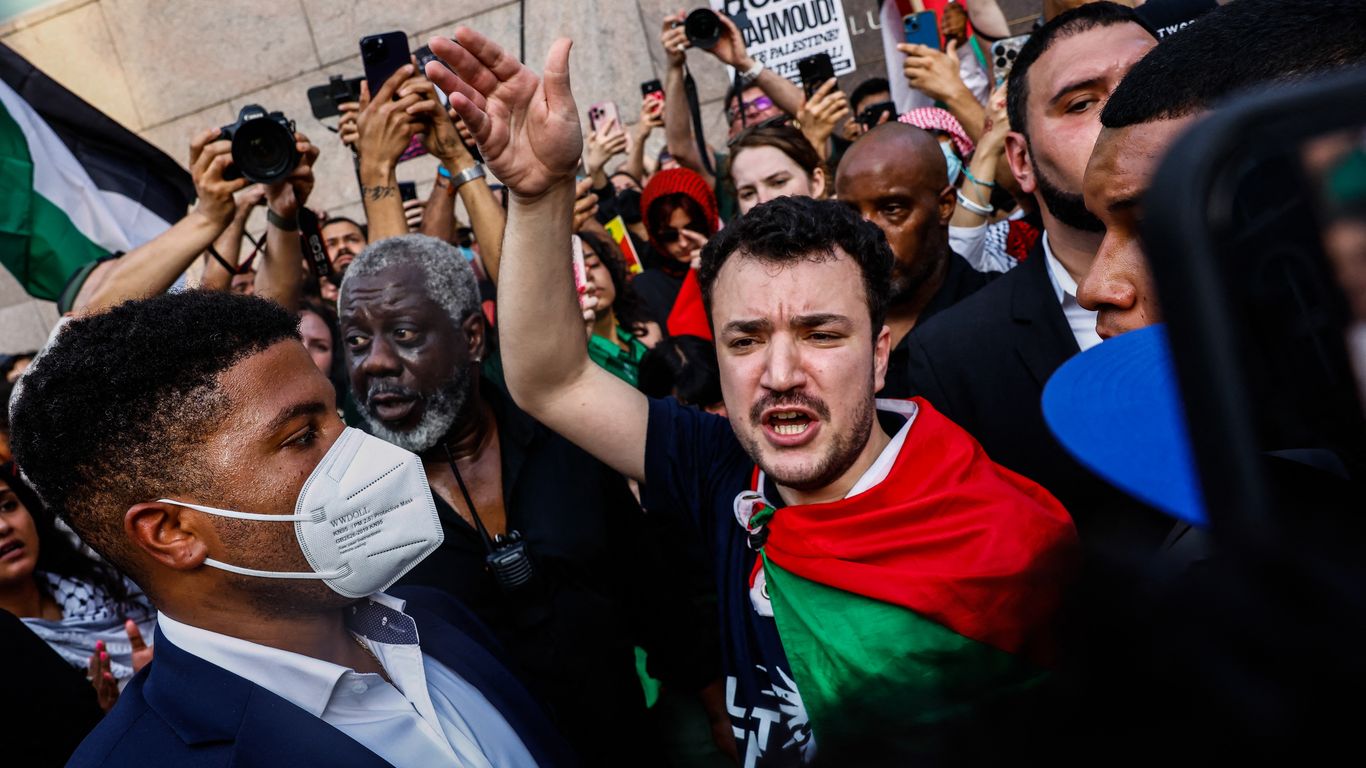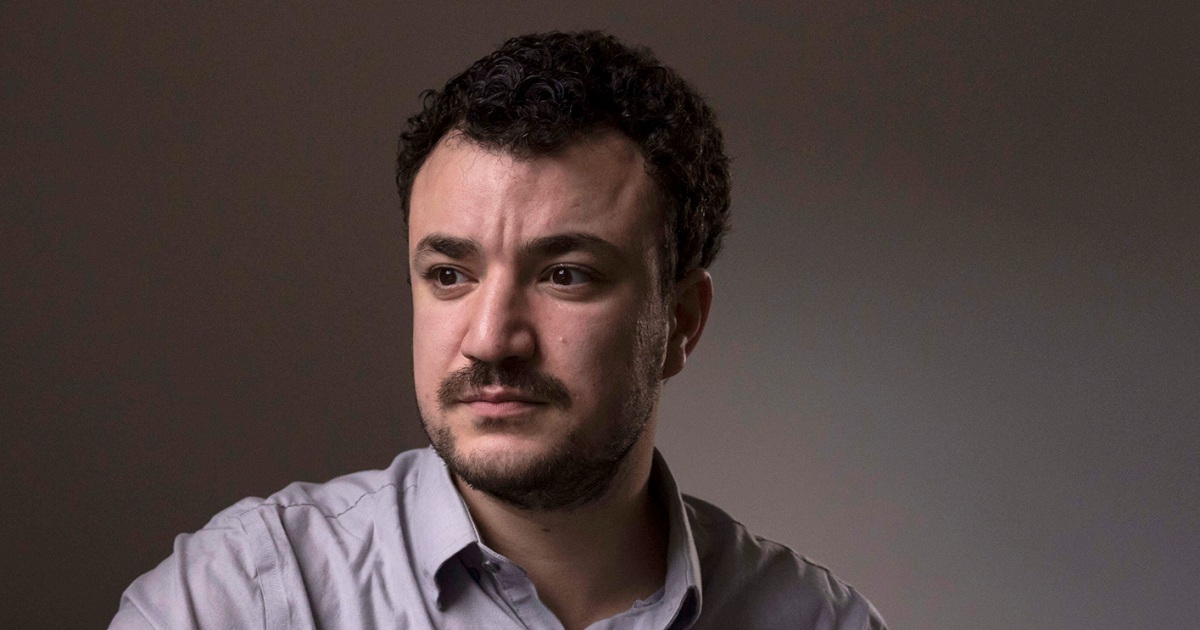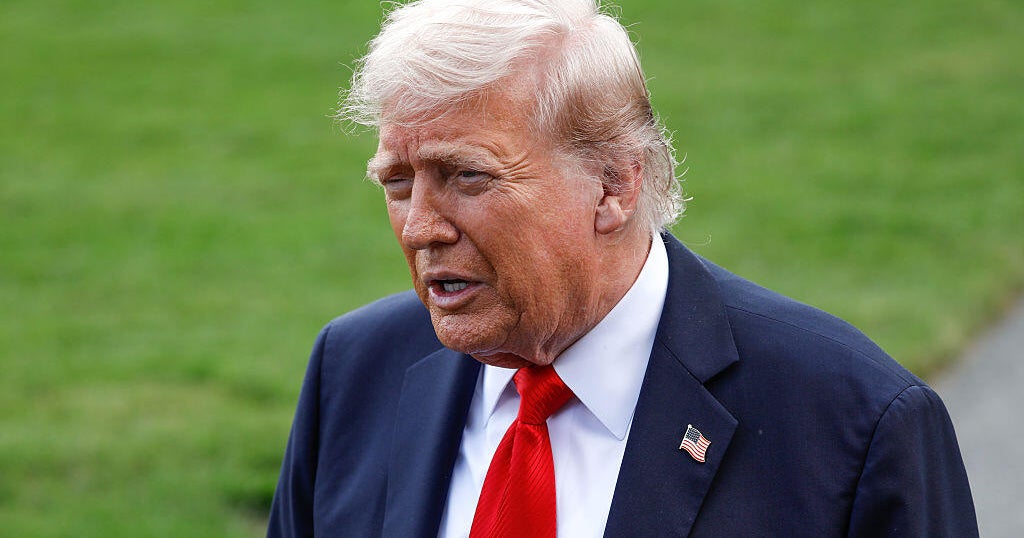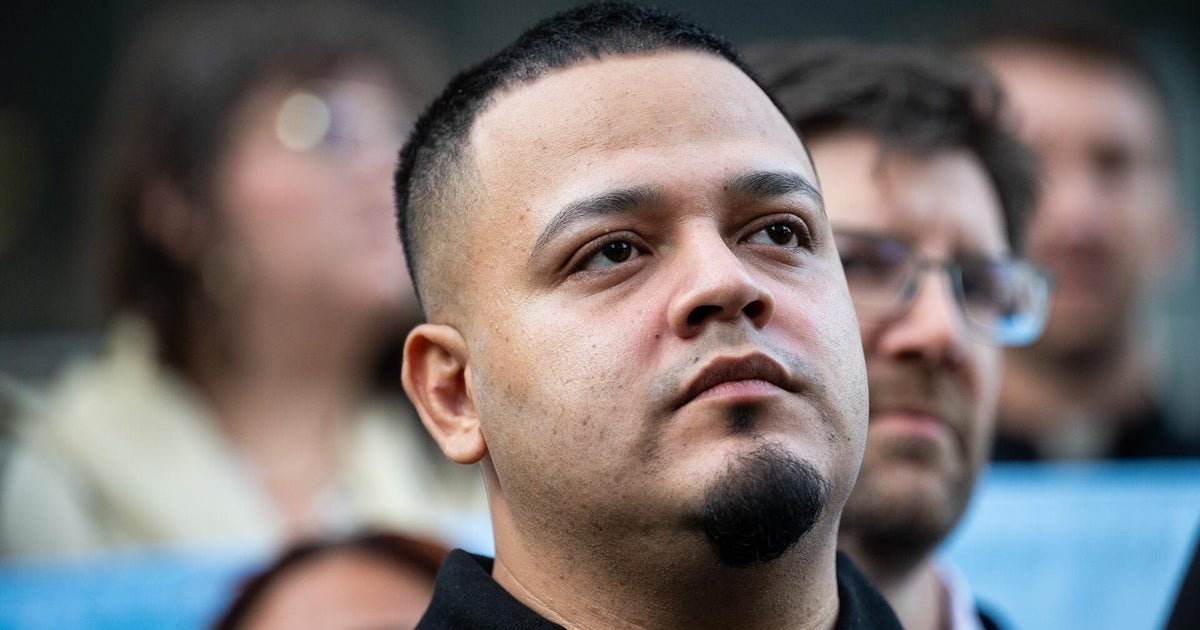Controversial Deportation Ruling Sparks Immigration Debate

Introduction
In a recent immigration case, the judge has ruled that Mahmoud Khalil must be deported to either Syria or Algeria. This decision has sparked controversy and raises questions about the current state of immigration policies.
Legal Battle
Khalil's lawyers have indicated that they will be appealing the ruling. They argue that sending him back to either country would put his life at risk due to the ongoing conflicts and political turmoil. This case is just one of many in which individuals are facing deportation to countries with unstable and dangerous conditions.
The judge's decision also brings attention to the difficulties and complexities of navigating the immigration system. With constantly changing policies and strict regulations, individuals like Khalil are left in uncertain and vulnerable positions.
Potential Consequences
If Khalil is ultimately deported, it could have a significant impact on his life and the lives of those he may leave behind. With his future now in limbo, it raises questions about the rights and protections of immigrants in the United States.
This case serves as a reminder of the importance of creating fair and just immigration policies that consider the well-being and safety of individuals seeking refuge in the country. As the legal battle continues, the fate of Khalil and others in similar situations remains uncertain.
About the People Mentioned
Mahmoud Khalil
Mahmoud Khalil is a Palestinian-Syrian activist and former graduate student at Columbia University, born in 1995 in a refugee camp in Damascus, Syria. He holds Palestinian refugee roots from Tiberias and grew up in Syria before pursuing higher education. Khalil earned a bachelor's degree in computer science from the Lebanese American University and completed a master's degree in International Affairs at Columbia University's School of International and Public Affairs in 2024[1][3]. Before his activism prominence, Khalil worked in international development and social services, including managing the Syria Chevening Program at the British Embassy in Beirut, which is a UK government international scholarship scheme. He has been described by colleagues as thoughtful, intelligent, and conscientious[1][4]. He also worked with Syrian refugees and non-profit organizations focused on education[4]. Khalil became widely known for his leadership in the pro-Palestinian student movement at Columbia University, particularly during the 2024 campus occupations advocating for Palestinian rights and against alleged university complicity in Israeli policies. He served as a lead negotiator between student protesters and university administrators, helping mediate tensions without directly participating in building occupations[1][2]. His activism drew national attention and controversy, especially within debates on academic freedom and immigration policies in the United States. In March 2025, Khalil was detained by U.S. Immigration and Customs Enforcement (ICE) in Louisiana, despite holding a U.S. green card that grants him permanent residency. His detention sparked widespread discussion about immigration enforcement and the rights of activists, with his case potentially reaching the U.S. Supreme Court[1]. On a personal note, Khalil married Noor Abdalla, an American dentist, in 2023, and they are expecting their first child in April 2025[1][4]. He has been featured in the 2025 documentary "The Encampments," which chronicles the pro-Palestinian student protests[1][3]. His net worth is estimated under $100,000, primarily from scholarships and part-time consulting[1].
About the Organizations Mentioned
United States
The **United States** is a federal republic and a global superpower, playing a leading role in economics, military strength, technology, and governance. It is a nation of approximately 348 million people as of 2025, characterized by its diverse population and dynamic economy[8][6]. Founded in 1776 following independence from British rule, the U.S. rapidly evolved into a major world power, especially after World War II, when its technological and economic investments solidified its global dominance[4]. Today, it remains the world’s preeminent military power, with 76% of Americans recognizing this status, while about half view it as the leading economic power globally, though China is seen as a rising competitor[2][3]. The U.S. government operates through a complex system that manages federal finances, taxation, social welfare programs, and trade policies. Recent legislative changes, such as the 2017 Tax Cuts and Jobs Act and the 2025 One Big Beautiful Bill Act, have shaped the tax landscape to influence economic growth, labor markets, and federal revenue[1]. Despite challenges like rising federal deficits projected to reach 6.9% of GDP by 2027, consumer spending remains resilient, and business investment is expected to grow steadily in 2025[5]. In governance, the U.S. is rated "Free" with a score of 84/100 by Freedom House, though concerns about democratic erosion and partisan conflicts persist[6]. Public trust and satisfaction with government services fluctuate, reflecting ongoing debates about policy effectiveness and institutional competence[7]. Technologically, the U.S. maintains a critical edge, underpinning its economic and geopolitical power. Experts warn, however, that technological dominance is not guaranteed indefinitely, emphasizing the need for adaptive policies and international cooperation to sustain leadership in innovation and global affairs[4]. Overall, the United States remains a pivotal force in global business, technology, and politics, balancing historic strengths with contemporary challenges in


















